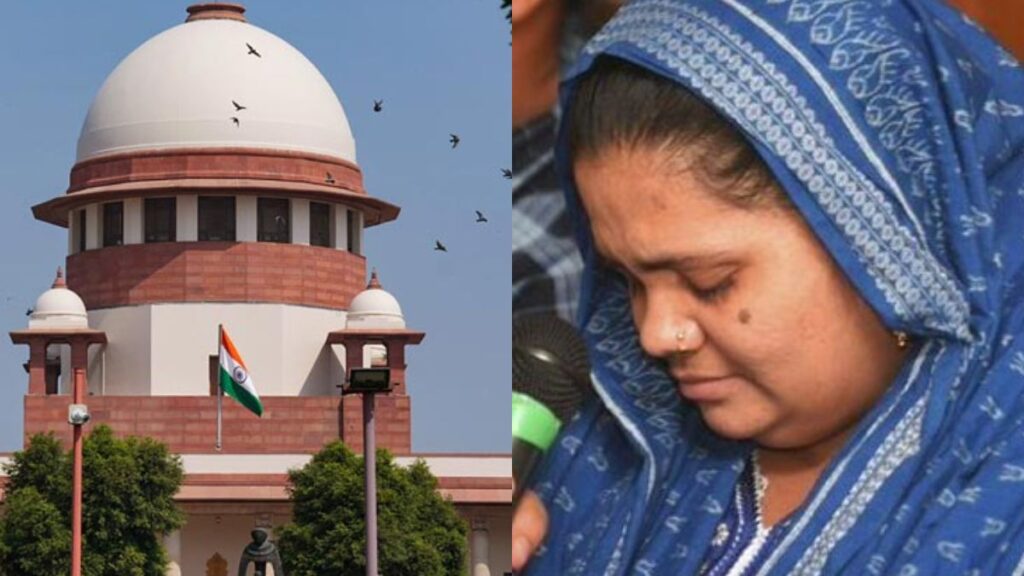
Bilkis Bano gang rape: Supreme Court judgment on Monday in pleas challenging early release of convicts
Last Updated on January 6, 2024 by News Desk
Issue:
The Supreme Court’s ruling on the early release of the Bilkis Bano gangrape case.
Facts of the Case:
The lawsuit centers on the early release of eleven convicted felons who were part in the 2002 Gujarat riots and the gang rape and killing of Bilkis Bano’s family. The Gujarat government awarded remission to the offenders based on a May 2022 Supreme Court ruling that ordered remission requests to be in line with the state’s criminal justice strategy rather than the location of the trial. The trial took place in Maharashtra, but the convicted were freed in Gujarat, which caused controversy.
Arguments Presented by Parties:
The Gujarati government defended its choice by citing the completion of 14 years in prison and taking into account several aspects including age, the type of crime committed, and prisoner conduct. Bilkis Bano was among the petitioners who opposed the release, claiming that it went against the ideals of justice and downplayed the seriousness of the crimes perpetrated in the Gujarat riots. They stressed that, when it comes to remission, the trial site should take precedence over the state’s criminal code.
Reasoning of the Judgment:
After deferring the case to October 12, the bench consisting of Justices BV Nagarathna and Ujjal Bhuyan reviewed the opposing arguments. The court considered the ramifications of the ruling from May 2022 mandating compliance with the state’s criminal code. The court also probably considered the petitioners’ concerns about the heinousness of the offences and evaluated whether the release complied with justice standards.
Judgement:
The fate of the eleven convicted individuals freed by the Gujarati government will be decided by the Supreme Court, which is expected to hand down its decision on January 8. The ruling will have significant effects on trial location preference over state policies, the implementation of remission programs, and the responsibility for crimes committed during periods of social unrest. In addition to guaranteeing justice in such serious circumstances, the decision is anticipated to provide light on the legal parameters of remission.
Case title: Bilkis Yakub Rasool v. Union of India and ors
Written By: Nikita Shankar @nikitaashankar





